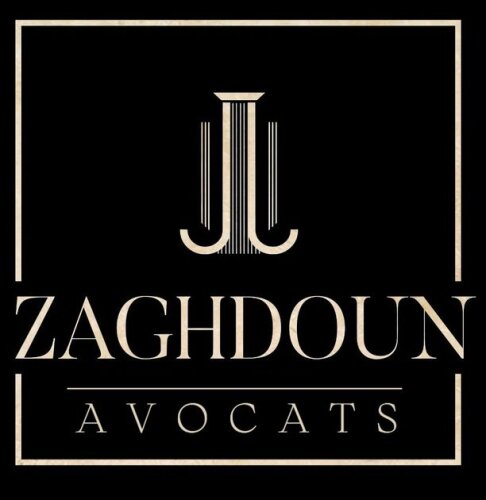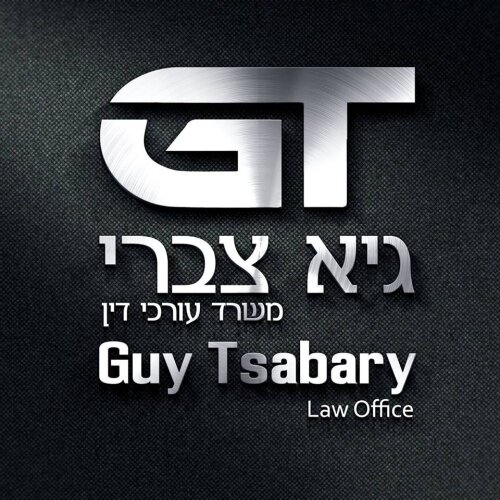Best Bankruptcy & Debt Lawyers in Jerusalem
Share your needs with us, get contacted by law firms.
Free. Takes 2 min.
List of the best lawyers in Jerusalem, Israel
About Bankruptcy & Debt Law in Jerusalem, Israel
Bankruptcy and debt laws in Jerusalem, Israel, are designed to handle and resolve financial crises for individuals and businesses. This area of law provides structured mechanisms for debt repayment and relief while safeguarding the rights of both creditors and debtors. Whether one is facing overwhelming personal debts or business insolvency, understanding these laws is crucial to navigate financial distress effectively.
Why You May Need a Lawyer
Seeking legal advice in the field of bankruptcy and debt can be crucial in several situations:
- Personal Bankruptcy: Individuals struggling with unmanageable debt may need a lawyer to guide them through filing for bankruptcy, negotiating with creditors, and understanding their legal obligations.
- Business Insolvency: Businesses facing insolvency may require legal assistance to restructure debts, manage assets, and ensure compliance with local laws.
- Debt Settlement: Attorneys can assist in negotiating settlements with creditors to reduce the overall debt amount or establish manageable repayment plans.
- Creditor Rights: Creditors seeking to recover owed money may need legal advice to pursue claims and navigate debt recovery processes.
- Legal Representation: If a debtor or creditor is involved in a legal dispute over debt issues, having a lawyer can provide advocacy and improve the chances of a favorable outcome.
Local Laws Overview
Bankruptcy and debt laws in Jerusalem, Israel, are influenced by both local legislation and broader Israeli laws. Key aspects include:
- Bankruptcy Ordinance: Governs the process of bankruptcy for individuals and businesses, detailing procedures from petition to discharge.
- Debt Collection Law: Outlines the legal frameworks for debt collection practices, ensuring fair treatment of debtors and creditors.
- Insolvency and Economic Rehabilitation Law: Focuses on economically rehabilitating individuals and businesses to promote financial stability and efficient asset distribution.
- Stay of Proceedings: Under the Insolvency and Economic Rehabilitation Law, there can be a temporary suspension of judicial proceedings against a debtor to allow for orderly asset management and debt restructuring.
- Debt Restructuring: Mechanisms for reorganizing debt to offer more manageable payment options and potentially reduce the principal amount owed.
Frequently Asked Questions
What is bankruptcy?
Bankruptcy is a legal process through which individuals or businesses unable to meet their financial obligations can seek relief from some or all their debts.
Who can file for bankruptcy in Jerusalem?
Both individuals and businesses facing financial difficulties can file for bankruptcy under the relevant Israeli laws.
What is the difference between liquidation and reorganization in bankruptcy?
Liquidation involves selling the debtor's assets to pay creditors, while reorganization allows the debtor to keep assets and restructure debts to repay over time.
How does the court determine if I qualify for bankruptcy?
The court will review your financial situation, including assets, liabilities, income, and expenses, to determine eligibility for bankruptcy relief.
What happens to my property if I file for bankruptcy?
Property may be sold to pay off debts in a liquidation bankruptcy, but some types of property may be exempt from sale under local laws.
Can all types of debt be discharged in bankruptcy?
No. Some debts, such as certain taxes, child support, and student loans, typically cannot be discharged in bankruptcy.
How long does the bankruptcy process take?
The duration of the bankruptcy process can vary, often taking several months to a few years based on the complexity of the case and type of bankruptcy filed.
What are the consequences of filing for bankruptcy?
Consequences can include a significantly impacted credit rating, loss of assets, and potential limitations on future borrowing capacity, but it also offers a chance for a fresh financial start.
Can creditors continue to contact me once I file for bankruptcy?
No, once bankruptcy proceedings are initiated, an automatic stay usually goes into effect, preventing creditors from pursuing collection actions against the debtor.
Do I need a lawyer to file for bankruptcy?
While it is possible to file for bankruptcy without a lawyer, having legal representation is highly advisable to navigate the complex legal requirements and proceedings effectively.
Additional Resources
For those seeking additional information or assistance, consider the following resources:
- Israeli Ministry of Justice: Provides information on bankruptcy laws, procedures, and official guidelines.
- Jerusalem Legal Aid and Human Rights Association: Offers legal support services for residents in need of assistance with debt-related issues.
- Bankruptcy Trustees and Administrators: Licensed professionals that can handle bankruptcy proceedings and asset management.
- Municipal Debt Counseling Services: Offered by local government offices to provide support and guidance on managing and resolving debts.
Next Steps
If you need legal assistance in the area of bankruptcy and debt, consider the following steps:
- Consult a Lawyer: Find an experienced attorney specializing in bankruptcy and debt law in Jerusalem to discuss your situation and explore your options.
- Gather Financial Information: Prepare and organize documents detailing your finances, including assets, liabilities, income, and expenses.
- Consider Available Options: Understand the different types of bankruptcy and debt relief available, and choose the option that best suits your circumstances.
- File Appropriate Documents: Work with your lawyer to file the necessary paperwork with the court and initiate the legal process.
- Follow Legal Guidelines: Adhere to court instructions and legal requirements throughout the bankruptcy or debt resolution process.
Remember, taking informed and timely actions can make a significant difference in effectively managing and overcoming financial challenges.
Lawzana helps you find the best lawyers and law firms in Jerusalem through a curated and pre-screened list of qualified legal professionals. Our platform offers rankings and detailed profiles of attorneys and law firms, allowing you to compare based on practice areas, including Bankruptcy & Debt, experience, and client feedback.
Each profile includes a description of the firm's areas of practice, client reviews, team members and partners, year of establishment, spoken languages, office locations, contact information, social media presence, and any published articles or resources. Most firms on our platform speak English and are experienced in both local and international legal matters.
Get a quote from top-rated law firms in Jerusalem, Israel — quickly, securely, and without unnecessary hassle.
Disclaimer:
The information provided on this page is for general informational purposes only and does not constitute legal advice. While we strive to ensure the accuracy and relevance of the content, legal information may change over time, and interpretations of the law can vary. You should always consult with a qualified legal professional for advice specific to your situation.
We disclaim all liability for actions taken or not taken based on the content of this page. If you believe any information is incorrect or outdated, please contact us, and we will review and update it where appropriate.
Browse bankruptcy & debt law firms by service in Jerusalem, Israel
Jerusalem, Israel Attorneys in related practice areas.
















